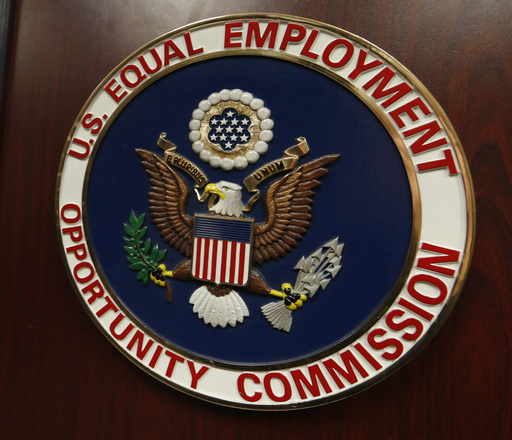
A federal appeals court recently allowed a lawsuit brought by 17 states to challenge federal regulations requiring workplace accommodations for workers seeking abortions to move forward. This decision, made by the Eighth Circuit Court, overturns a previous ruling by U.S. District Judge D.P. Marshall, Jr. of the Eastern District of Arkansas who had dismissed the case on the grounds that the states did not have the standing to sue. Chief Judge Steven M. Colloton, who was appointed by former President George W. Bush, stated that the states indeed possess standing since they are affected by the federal rules in question.
The lawsuit, initiated by Republican attorneys general from Tennessee and Arkansas, contests the Equal Employment Opportunity Commission (EEOC) guidelines implementing the Pregnant Workers Fairness Act, a bipartisan law enacted in 2022 which mandates that employers provide “reasonable accommodations” to employees who are pregnant or recently postpartum. The newly established rules allow not only standard accommodations like time off for prenatal appointments and more frequent breaks, but also allow employees to request leave for obtaining an abortion and recuperating afterward.
Tennessee Attorney General Jonathan Skrmetti criticized the Biden administration’s EEOC, asserting that their attempt to broaden the law in a way he deems ideological is unlawful. He expressed gratitude for the court’s decision that permits their lawsuit to continue, emphasizing that the EEOC’s directives contravene the authority of elected representatives.
The coalition of states, which includes attorneys general from Alabama, Florida, Georgia, Idaho, Indiana, Iowa, Kansas, Missouri, Nebraska, North Dakota, Oklahoma, South Carolina, South Dakota, Utah, and West Virginia, has joined in this legal challenge, which is one among several disputing the regulations pertaining to the Pregnant Workers Fairness Act. Notably, a separate lawsuit in Texas aims to negate the entire law.
The Eighth Circuit’s ruling arrives in the context of a broader national conversation about state-level abortion restrictions, especially following a 2022 U.S. Supreme Court decision that has paved the way for tighter abortion laws. Legislative discussions in some states have also recently revolved around proposals to classify women obtaining abortions as murderers.
During Biden’s tenure, the EEOC has provided new regulations to guide employers and employees regarding the Pregnant Workers Fairness Act. These provisions include allowances for time off to access abortion services as well as recuperation related to pregnancy complications such as miscarriage and lactation. The agency argues that their stance aligns with longstanding judicial interpretations that regard abortion as a component of pregnancy-related discrimination.
However, discontent arose among some Republican lawmakers, including Louisiana Senator Bill Cassidy, who expressed outrage over the EEOC’s position on abortion coverage under the law. Both Republican commissioners at the EEOC opposed the new rules during their establishment.
The EEOC has recently experienced substantial administrative changes since the commencement of President Biden’s administration. After appointing a new acting chair, the previous Democratic commissioners were let go before their terms concluded, resulting in a shift in the commission’s balance. With a potential reevaluation of these rules on the horizon and the DOJ representing the EEOC, the future direction of the lawsuit and the regulations themselves remains uncertain.
Inimai Chettiar, president of the advocacy organization A Better Balance, which played a crucial role in the ten-year campaign for the Pregnant Workers Fairness Act, commented on the Eighth Circuit’s ruling, labeling it an undermining of reproductive rights. She asserted that employees should not face discrimination or job displacement when seeking essential health services such as abortion.
Chettiar expressed concerns about potential moves to overrule the existing regulations tied to the Pregnant Workers Fairness Act amid the rapid changes at the EEOC, including recent firing of commissioners and shifts in department leadership. Nevertheless, she affirmed that the law and its provisions still stand, urging those affected to reach out for guidance and support via their legal helpline.

